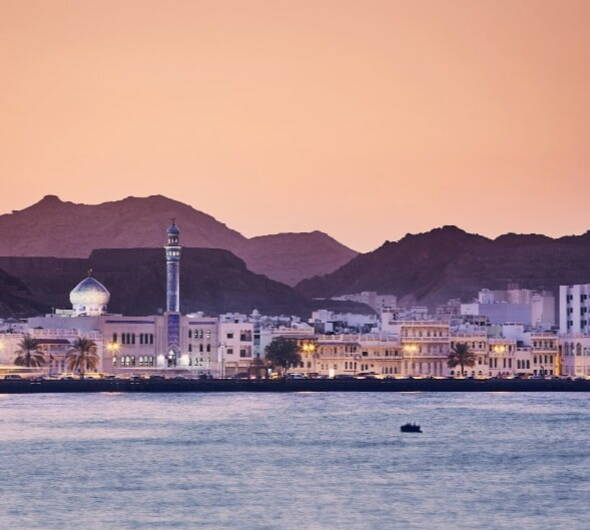Relocation & Recruitment Advice
For recruitment in Oman, please contact our consultants at AP Executive. Use our job search function to see our current jobs in Oman.
For recruitment in Oman, please contact our consultants at AP Executive. Use our job search function to see our current jobs in Oman.

Oman is an Arab state situated on the southeast coast of the Arabian Peninsula. With Muscat as the capital, and Arabic as the official language, this country supports a complete Islamic Monarchy. The country is 309,500 kilometres squared and hosts a population of 4.829 million (as at 2018). The GDP of the country is just under USD80 billion with a large GDP per capita of USD16,415 (2018). A large amount of government income derives from the country's oil supply.
Like most Arab states in the Gulf, the taxation system is somewhat similar. The Omani tax regime has been considered to be both reasonable and pragmatic in its dealing with taxpayers. The tax system has undergone important changes reflecting the government policy of opening up the economy to foreign investment, and more changes are forthcoming. By and large, taxation is moderate because many of the government's revenues are oil revenues. Therefore, Oman levies no personal income tax, estate tax or gift tax. All entities, both foreign and locally owned, are taxable in Oman. This effort to stimulate foreign international investment has worked, more money is being invested in countries such as Oman due to their attractive tax structures. There is, however, company tax to be paid. The most important tax in Oman is the tax on business income, which is based upon the Corporate Income Tax Law of 1981 and subsequent Royal and Ministerial Decrees. Taxable entities are entities that have a permanent establishment in the country so that any entity that has personnel present in Oman is taxed. Taxable income includes business profit, interest, royalties and capital gains, and is computed on the net income arising in Oman or deemed to have risen in Oman after deducting all ordinary expenses, such as expenditure incurred in producing the gross revenue, bad debts, auditors' fees, depreciation, head office expenses, sponsorship fees and certain donations. Losses may be carried forward for up to five years. Although this absolute Islamic Monarchy is very strict and stringent in some respects, it is evident that they wish to reform foreign international policy. There has been some impressive progress in the establishment of foreign enterprises here, even though there must be an Omani national tied into the business in various matters.
Here are a few useful links.
Although starting a business in Oman can sound daunting, knowledge of the local business landscape and a detailed business plan can make things easier for you.
If one is thinking of relocating to Oman, one has to go through various different bureaucratic procedures. However, there have been improvements in the immigration policy from the perspective of potential foreigners wishing to live and work in Oman. First of all, there are two different possibilities. The first; a standard holiday visa, this entitles one to stay in the country for three months. Secondly, a work permit/visa; this is issued at the request of a competent local sponsor who is responsible for the accuracy of the data entered on the application and on his responsibility to the applicant, who must be at least 21 years but not older than 50 years. The visa is valid for entry 6 months from the date of issue. Visas are valid for a maximum stay of 2 years from the date of entry of the date of the passport stamp. The visa is renewable for similar periods as dictated by work. It allows multiple entries by air.

CEO, Global

Executive Consultant, London, Paris, LatAm and the Middle East

Executive Consultant, London, Europe, the Middle East

Legal Consultant, Middle East